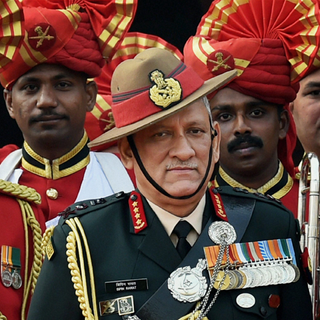
Know Your Rights: Adoption In India
A family law expert explains the rights of both prospective and adoptive parents.

This interview has been condensed and edited for clarity. As told to Anubhuti Matta.
Adoption can be complicated. This path to parenthood involves a lot of parties and, therefore, raises a lot of questions. While there are heaps of information on the internet, most of it focuses on the process. Here, we speak with advocate Divit Mukherjee, who specializes in family law, to answer readers’ questions about the laws that govern adoption and the rights of both prospective and adoptive parents.
What laws govern adoption in India?
Prospective parents have two options, Mukherjee says. They can either adopt under the Hindu Adoptions and Maintenance Act (HAMA), 1956, or via the Central Adoption Resource Authority (CARA), a national body under the Ministry of Women and Child Development, which was set up in 1990 as the primary facilitator of adoption, unlimited by religious affiliation.
“HAMA is now touted as an old law that limits adoption only by Hindus and among people who know each other. It doesn’t promote mass-scale adoption between strangers,” says Mukherjee.
Who is eligible to adopt in India?
In India, adoption is open to Indian citizens, Overseas Citizens of India (OCIs), and foreign nationals, irrespective of their gender or marital status. However, there are various, more specific rules that apply to each group, including age ranges.
Can step-parents adopt their spouse’s children?
Yes. However, first, the adoption will need consent from the biological parent the child has been living with or isn’t with. Then along with this biological parent, they will need to file an application in a court to obtain an adoption order and register with CARA.
In case the custody of the child is under litigation, the adoption process will begin after the court has settled the case.
Can individuals adopt specific children related to them? (E.g. an adult sibling adopting a minor sibling)
Yes, uncles, aunts and grandparents from both sides can adopt the child, and the process is simpler if it happens to be one of these relatives and if the child is of the opposite gender as compared to their biological child. For other relatives, the process is similar but often needs involvement of the court.
Can differently abled people adopt?
It depends on the nature and severity of the disability. A differently-abled person’s eligibility to adopt is determined by a home study, conducted by the social worker. All prospective parents undergo such home study to assess whether the individual or couple will be able to support and has the ability to parent a child.
How many times can a prospective parent(s) try to adopt if their application gets rejected?
You can appeal as many times as you want to CARA.
Related on The Swaddle:
Indian Adoption Body Allows Live‑in Couples to Be Parents
Can prospective parents choose the gender of the child they adopt?
Yes, as per CARA, an adoptive parent(s) can choose the gender, if they so desire, unless they’re a single man; by law, single male prospective parents are limited to adopting boys only.
Can prospective parents choose the age of the child they adopt?
Parents can select a preferred age range in their application.
What other rights do prospective parents have in selecting which child they want to adopt?
Parent(s) can choose the gender of the child (with the exception noted above) and the preferred age group of the child. Based on that, CARA will offer three profiles that each include photographs, a child study report and a medical examination report. After viewing the profiles of the children, the prospective parent(s) has 48 hours to commit to one.
Can parents bring up an adopted child according to the parents’ faith?
Prospective parents belonging to any faith are eligible to adopt a child under CARA, and are free to bring up the child according to the faith they follow.
Prospective parents are not allowed to know whether their adoptive child was ‘born into’ their faith, however; adoptive parents don’t have any right to know details about the child’s caste, religio-communal roots, or date and time of birth, etc.
However, under the Adoption Regulations, 2017, an adoptive child at any point, even as a minor, can seek information about his/her roots by approaching the Specialized Adoptive Agency or child welfare committee of the district from where they were adopted.
What kind of rights can adoptive parents confer on their adopted child?
An adopted child has all of the same rights as a biological child; there is no difference in terms of anything, including inheritance. Adoptive parents must confer the same rights and privileges on the adopted child and show the same level of responsibility toward that child, as they would toward their biological child.
Related on The Swaddle:
Breastfeeding An Adopted Baby Is Possible — But Only If You Want to Do It
Are there any parental rights conferred on individuals who are housing or financially supporting a child who has not been adopted via HAMA or CARA?
If you have found an abandoned child in need of care and protection, you can’t adopt them; it’s not legal under Indian law. Therefore, even if you provide a home and/or financial support, you have no rights to the child. Even adopting from a hospital is not permitted under law. There are potential punishments of imprisonment and fines in both scenarios.
To help an abandoned child, Mukherjee recommends contacting a specialized adoptive agency, a child welfare committee, Childline (1098) or a District Child Protection Unit. Failing to inform any of these organizations while housing the child could result in a fine of up to Rs 10,000, imprisonment for six months, or both.
After adoption, do the child’s biological parents have any rights to the child?
Once the adoption order has been finalized, the biological parents have no legal ties with the child, and they cannot request the child’s return or lay claim to the child.
Are there any specific benefits that adoptive families uniquely qualify for?
No.
Are there any laws that adoptive parents are uniquely subject to?
No.
Is it possible to reverse, or undo, an adoption?
While there are provisions to terminate an adoption, these depend on
whether the adoption is still in the pre-adoption foster care stage, or whether the final adoption order has been given by the Court. Ultimately, the final decision is determined by what is in the best interest of the child.
In any case, terminating an adoption is not the first move adoptive parents can or should take, if they face challenging behavior in their child. Reaching out to friends, family, other adoptive families, and/or seeking professional help is recommended, Mukherjee says. The specialized adoptive agencies (SAAs) that conduct home studies can connect families to counselors specialized in adoptive family therapy.
Anubhuti Matta is an associate editor with The Swaddle. When not at work, she's busy pursuing kathak, reading books on and by women in the Middle East or making dresses out of Indian prints.
Related


LGTBQ+ Jawans Are Already in the Army; Welcoming Them Would Make the Ranks Stronger
